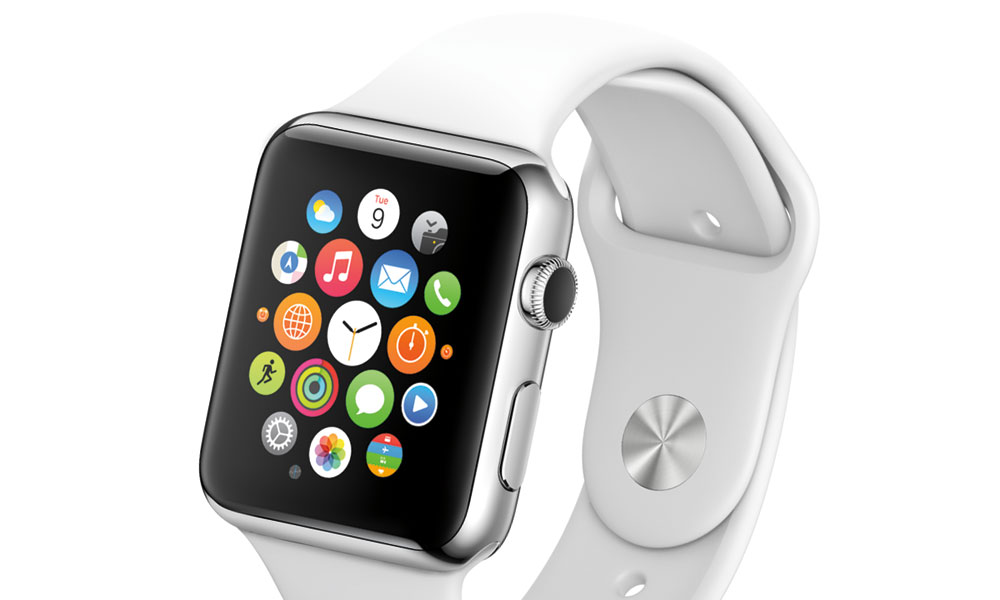
Time’s Up? Smartwatches Are Latest Disruption for Watch Industry
With Apple’s entry into the smartwatch space last week, is the life of the basic mechanical watch running on borrowed time? One industry expert weighs in.
With Apple’s entry into the smartwatch space last week, is the life of the basic mechanical watch running on borrowed time? One industry expert weighs in.
Tim Cook pulled back the curtain on one of the worst-kept secrets last week: Apple is officially entering the smartwatch race. Apple Watch, due out in early 2015, joins a category of products that includes the Pebble, Motorola’s Moto 360, and the Samsung Galaxy Gear, among others.
But as tech companies ramp up their efforts to control the real estate on a consumer’s wrist, the traditional watch industry takes comfort in the fact that they already do.
“It looks a little cold, and lacks, for my taste, a bit of personality,” Jean-Claude Biver, a legendary Swiss watchmaker, said of Apple’s new product in a recent interview with The Wall Street Journal. “It looks perfect, but perfection sometimes has a lack of sexiness. … This won’t create another crisis for the Swiss watch industry.”
Though his take on the product was slightly different, Jordan Ficklin, executive director of the American Watchmaker and Clockmaker Institute (AWCI), shares Biver’s sentiments.
“Personally, I love the Apple Watch. I think it’s a really neat item, and I’m excited for it,” he said. “I think it’s going to compete very well in the under-$1,000 segment, but us as an organization, we’re dealing mostly with luxury timepieces that are, many of them, way more than $1,000. This watch is not going to compete in that sphere at all.”
In fact, Ficklin thinks his organization could help Apple as it dives into the watchmaking industry. In a letter to the company last week, he asked how AWCI could get involved.
“When the consumer has their Apple Watch and it’s getting a little bit dirty, are they going to go to the Apple Store to have it cleaned, or are they going to go into a jewelry store like they do with their current watch? I don’t know the answer to that question yet, but I suspect both will happen,” he said “We would love to partner with Apple to educate our membership—watchmakers and clockmakers—on what procedures they should use when handling these pieces, and vice versa, perhaps help Apple educate their employees on things they need to be aware of from the watch world when handling these items.”
Staying Alive
The smartwatch isn’t the first perceived disruption to hit the watch industry. Mechanical timekeepers have survived everything from the introduction of the electronic clock to what Ficklin and others in the industry refer to as the “Quartz crisis” of the late 1960s, and even the proliferation of the smartphone.
“I’ve heard people describe it as a Chicken Little profession—every new innovation that comes along is going to destroy our industry,” he said. “But what it comes down to is the customer relates somehow to something on their wrist that’s ticking, that’s more than just a machine but is a work of art.”
The key to the watch industry’s survival? It’s willingness to “adapt and rebrand, and an understanding of how to connect with the consumer,” said Ficklin.
“The watch industry has done a great job of creating a relationship between their product and the individual who purchases it,” he said. “We’re a place that people can come to and find somebody they know they can believe in and trust. We’ve built our brand as an organization that promotes high quality. And it doesn’t matter if it’s a service or a product, if you stick to being able to promote high quality, people will come to you and want whatever it is you’re offering.”
(Apple press photo)






Comments